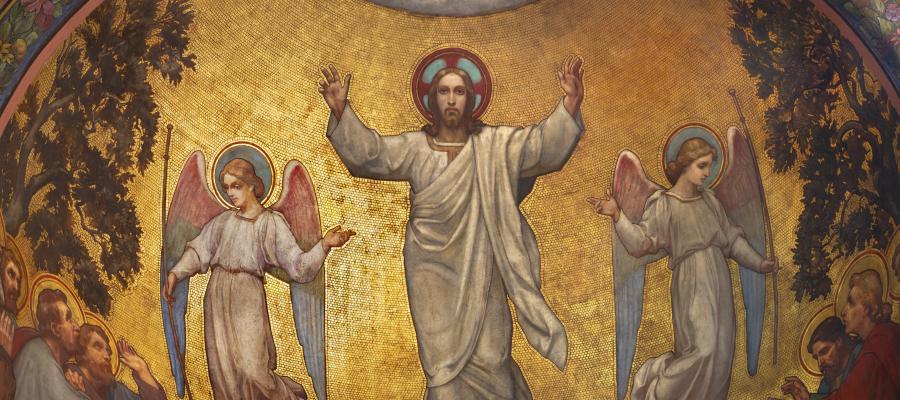
Why Did Jesus Have to Leave Us?
by Father Brian J. Soliven on Sunday June 1, 2025
Sometimes I find myself wondering—wouldn’t life be easier if Jesus were physically here with me? When sorrow grips my heart and the weight of life feels too much to bear, I imagine what it would be like to turn to Him, to see Him right beside me, and whisper through tears, “Help me, Lord.” Why did He have to leave? Would my burdens feel lighter if I could just reach out and touch Him? This Sunday, we reflect on the Ascension—when Jesus returned to the Father. And in that quiet moment of wondering, I must remind my heart: He did not leave me alone to fight the wolves myself. No, He ascended so that His presence could live not just beside me, but within me.
The Ascension of Jesus into Heaven is not an absence, but a transformation—a divine mystery through which Christ, no longer limited to one place, becomes present to all the faithful in a deeper and more powerful way. In his homily on the Ascension, Pope Leo the Great beautifully reminds us that “what was visible in our Redeemer has passed into the sacraments.” With these words, we are invited to see beyond the physical departure of Christ and to embrace the spiritual nearness that His glorified presence now brings through the Church and her sacred mysteries.
At the moment of the Ascension, the disciples stood gazing into the heavens, their hearts surely torn between awe and loss. Yet Christ’s return to the Father was not a retreat from humanity but a completion of His earthly mission. His bodily departure opened the way for the Holy Spirit to descend, empowering the Church and sanctifying the world through the sacraments—visible signs of His invisible grace.
Pope Leo encourages the faithful not to mourn the Lord’s departure but to rejoice in the greatness of His glorification, which lifts our human nature into heavenly dignity. Jesus did not forsake us; He became even more intimately united to us. In the Eucharist, we receive the real presence of His body and blood. In Baptism, we are buried and raised with Him. In Confession, we are forgiven by the power of His mercy. Each sacrament becomes a place where heaven touches earth, where Christ continues to walk with His people.
The Ascension, then, is not the end but the elevation of hope. It challenges us to live not by sight but by faith, trusting that Christ, now seated at the right hand of the Father, intercedes for us and draws us toward our true home. As Pope Leo says, “Our faith is nobler and stronger because sight has been replaced by teaching.” Let us take courage, knowing that in every sacrament, in every act of faith, Christ is closer than ever, calling us to live with hearts lifted to heaven.







